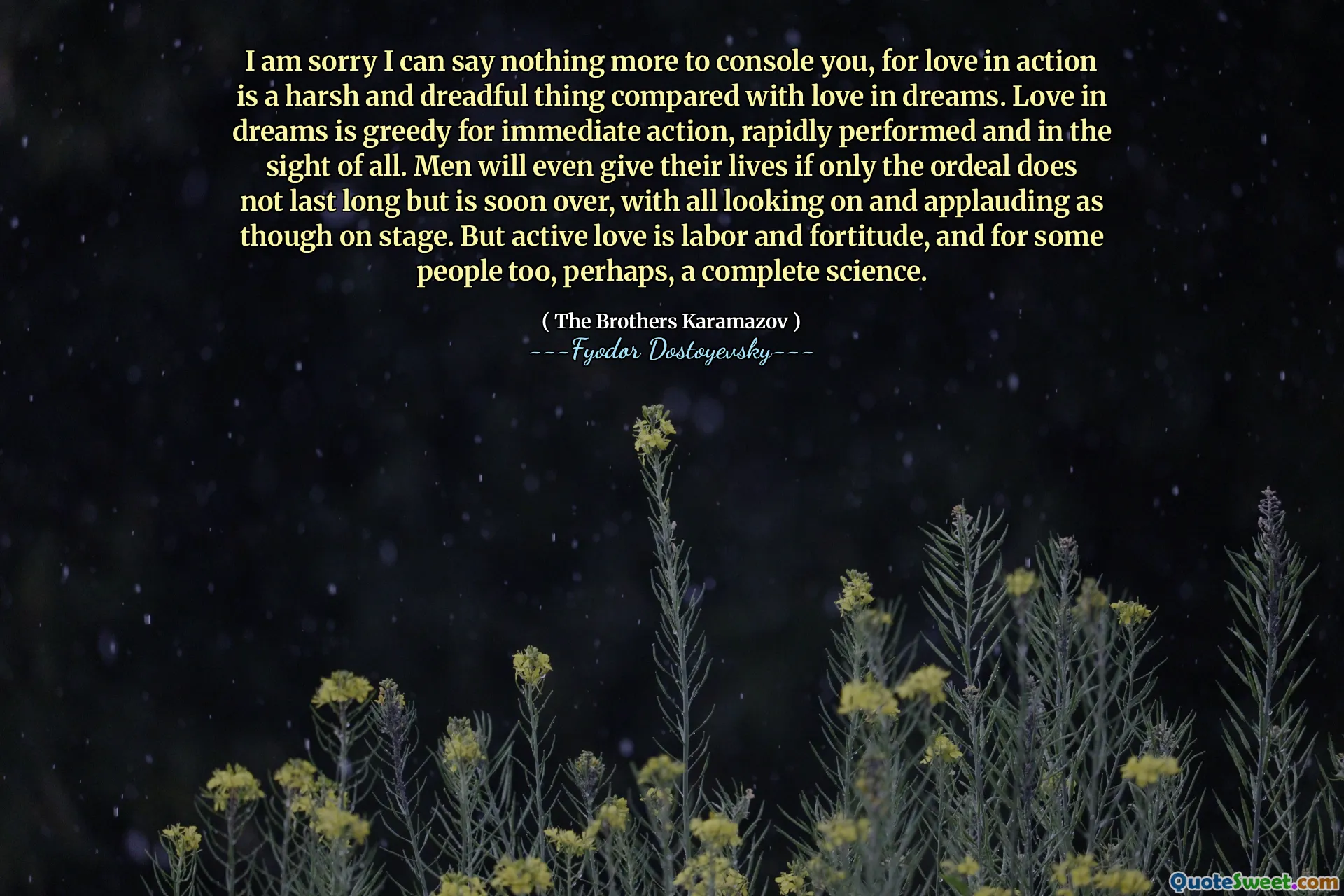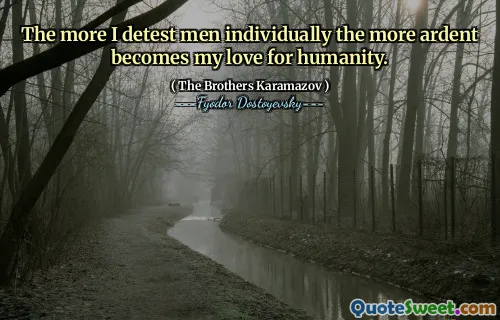
I am sorry I can say nothing more to console you, for love in action is a harsh and dreadful thing compared with love in dreams. Love in dreams is greedy for immediate action, rapidly performed and in the sight of all. Men will even give their lives if only the ordeal does not last long but is soon over, with all looking on and applauding as though on stage. But active love is labor and fortitude, and for some people too, perhaps, a complete science.
This quote by Fyodor Dostoyevsky from The Brothers Karamazov offers a profound meditation on the contrast between the idealized vision of love and the reality of love's demands in practice. The imagery of "love in dreams" being eager, public, and rapidly fulfilled reflects how people are often attracted to the idea of love as a thrilling and dramatic experience, celebrated and applauded by all. It’s a love that excites, arouses admiration, and even valorizes sacrifice when it is short-lived and visibly heroic.
However, Dostoyevsky shifts to expose the more grueling truth of "love in action." Here, love is depicted as laborious, requiring endurance, courage, and perhaps a kind of scientific discipline. This stands in stark contrast to the fantasy of swift, theatrical love. In reality, love demands ongoing commitment and involves hardship that might not be visible or glamorous to the outside world. It is a trial that tests character and resilience, ‘a harsh and dreadful thing,’ suggesting that love’s true value and depth lie beyond mere sentiment or dramatic display.
This observation highlights a universal tension in human experience—between longing for emotional exhilaration and the necessity of steady, often quiet work that relationships require. It challenges the superficial notions of love promoted in culture, urging a deeper appreciation for the patience and strength involved in true emotional bonds. Reading this prompts reflection on how we understand and practice love in our own lives—whether we seek immediate gratification or are willing to engage in the more demanding reality of sustained love. Dostoyevsky’s words remain relevant, encouraging readers to look beyond illusions and embrace love as a complex, enduring endeavor.











